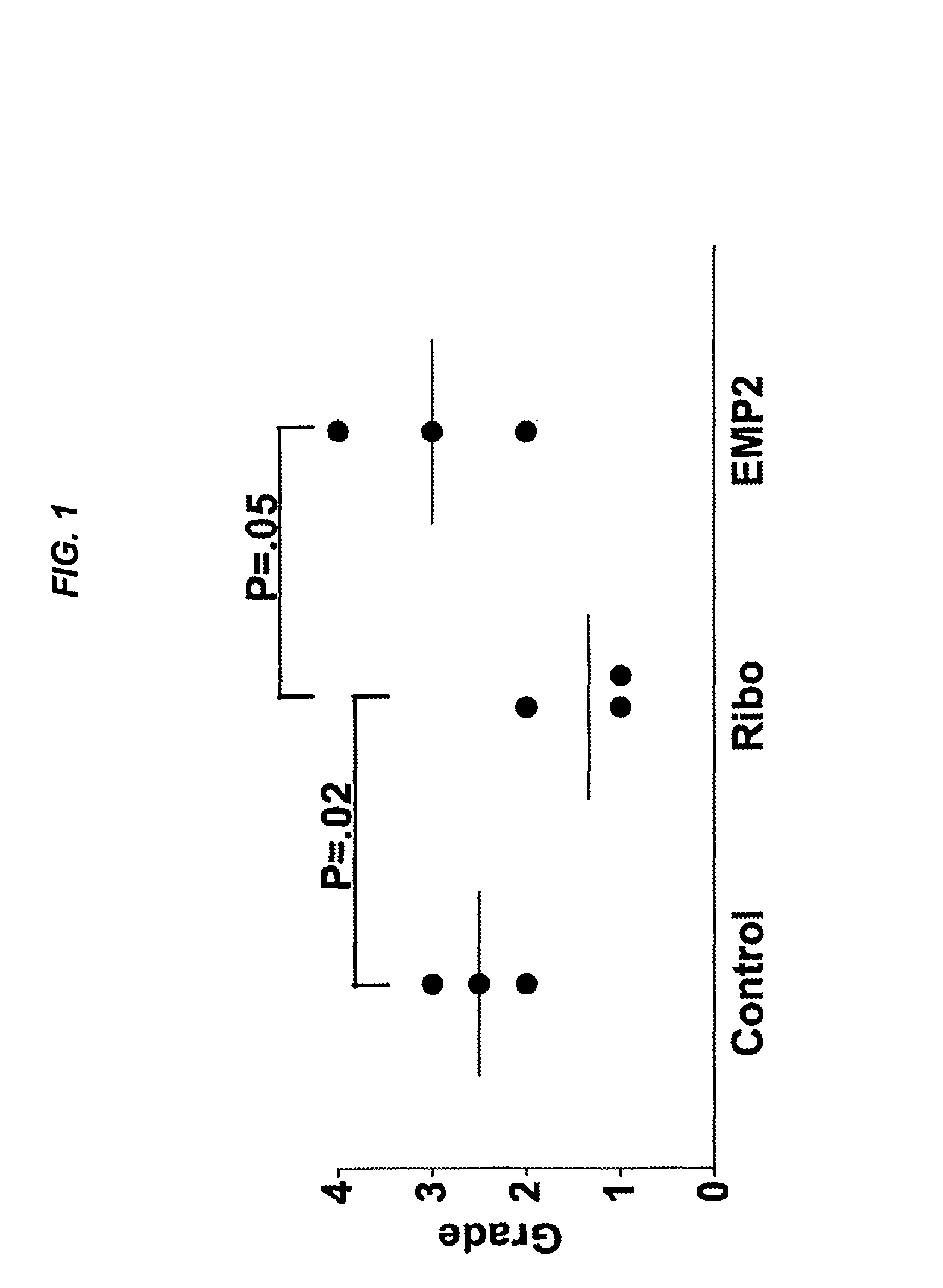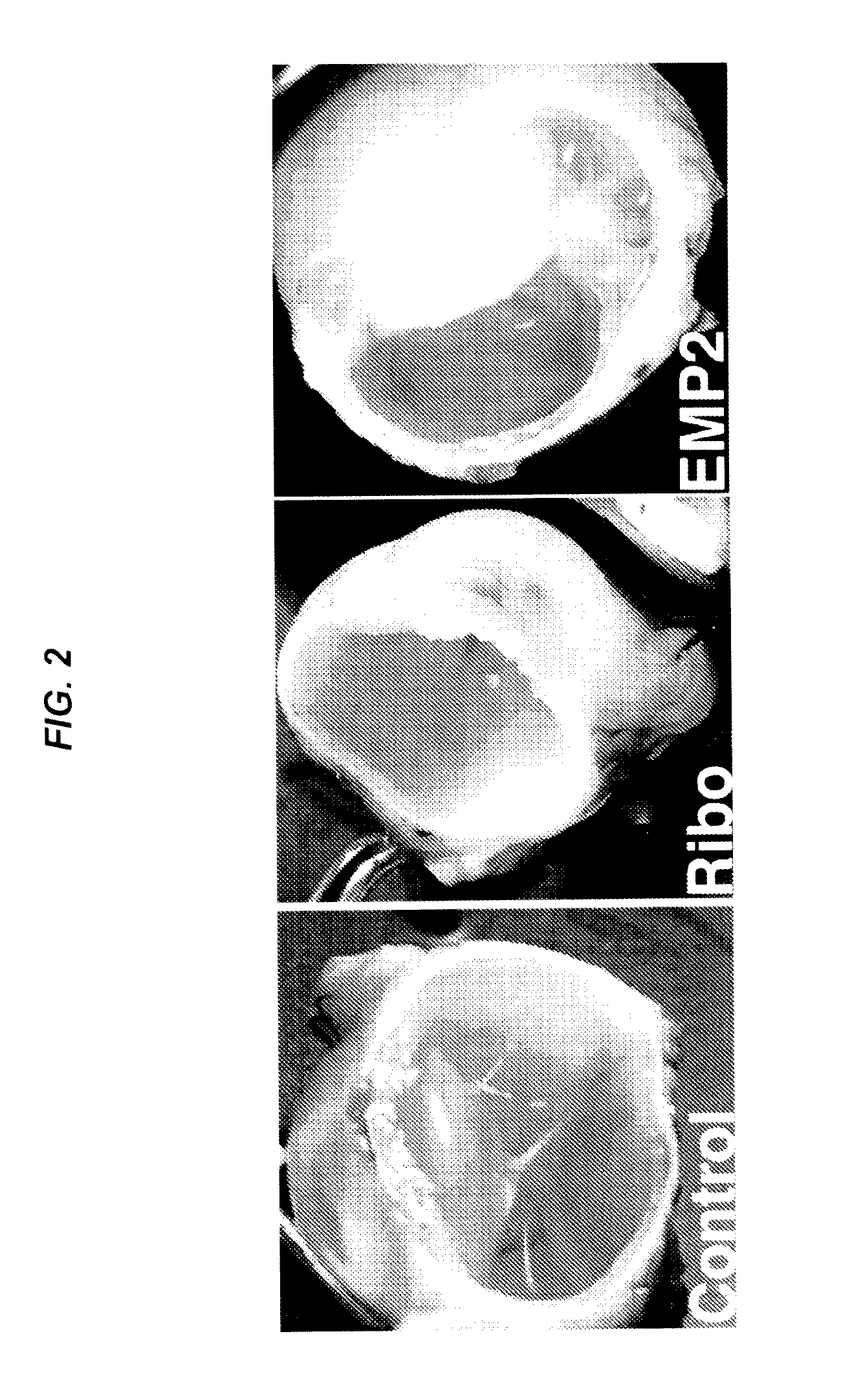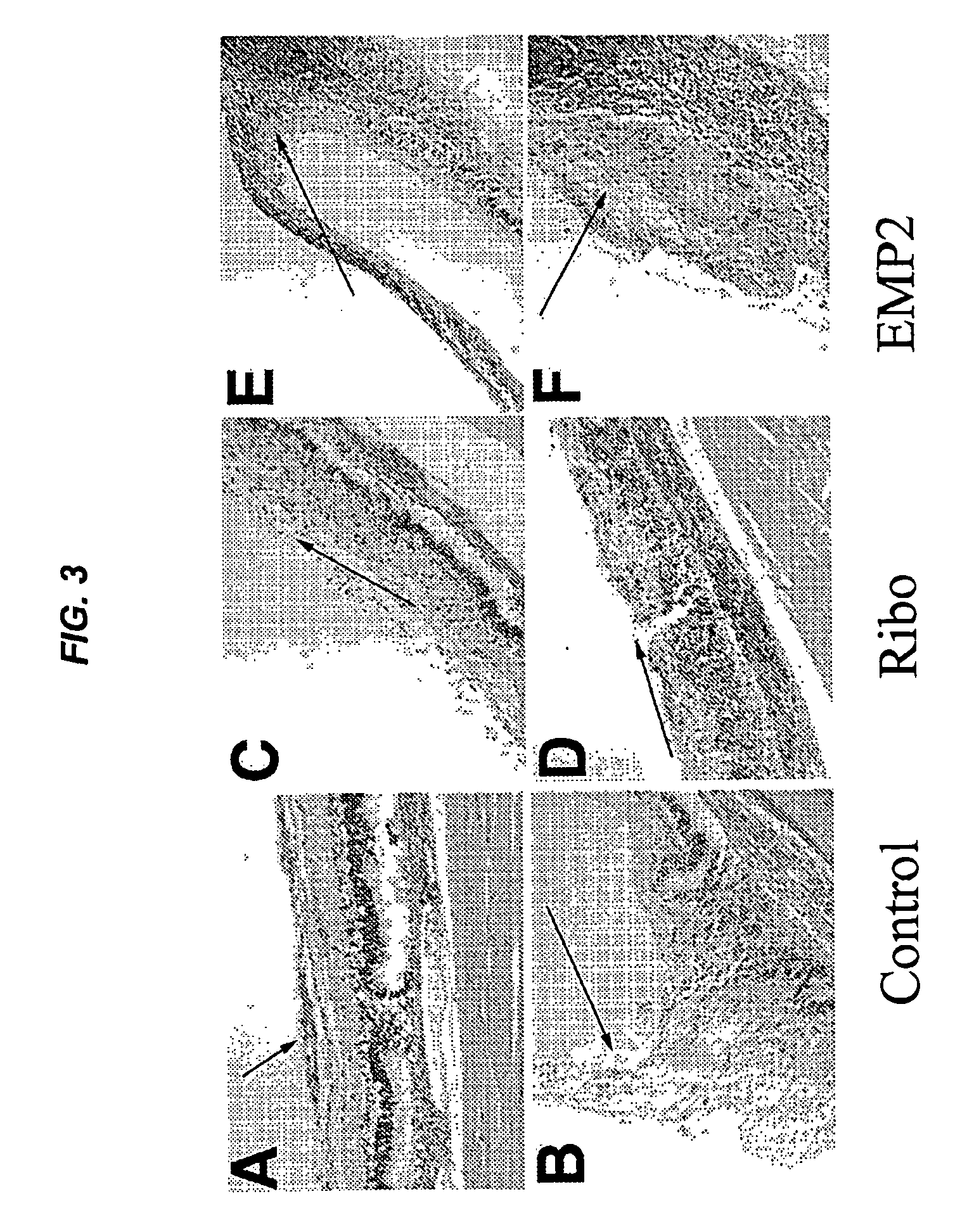Epithelial membrane protein-2 (EMP2) and proliferative vitroretinopathy (PVR)
a technology of epithelial membrane and proliferative vitroretinopathy, which is applied in the field of epithelial membrane protein2 (emp2) and proliferative vitroretinopathy (pvr), can solve the problems of high risk of pvr, patients' too often losing vision secondary to pvr and tractional pre-retinal membrane, etc., and achieve the effect of reducing emp2 activity
- Summary
- Abstract
- Description
- Claims
- Application Information
AI Technical Summary
Benefits of technology
Problems solved by technology
Method used
Image
Examples
example 1
[0141]Proliferative vitreoretinopathy (PVR) is thought to result in part from de-differentiation of retinal pigment epithelium (RPE) with cellular migration in the vitreous cavity, membrane formation, and contraction in an aberrant wound-healing strategy. In an in vitro collagen-gel contraction assay, epithelial membrane protein 2 (EMP2), a four transmembrane protein, controls contraction through activation of focal adhesion kinase (FAK) by a retinal pigment epithelium cell line (ARPE-19) was studied. The purpose of this study was to investigate whether the level of EMP-2 expression changed clinical PVR in an in vivo model system.
[0142]Methods:
[0143]ARPE-19 cell line was obtained from the ATCC, and the levels of EMP2 modulated through stable transfections of an EMP-2 overexpressing construct, EMP2 ribozyme, or vector alone. These stable transfected cell lines were used in a rabbit model of PVR. The severity of PVR was classified by two masked observers. An EMP2 blocking antibody was...
example 2
[0167]Proliferative vitreoretinopathy (PVR) is an aberrant wound healing that occurs as a complication of severe ocular trauma including penetrating injuries or rhegmatagenous retinal detachments. Epithelial membrane protein 2 (EMP2) regulates collagen gel contraction by the retinal pigment epithelium cell line ARPE-19, an in vitro model for PVR, by modulating FAK activation. The purpose of this study is to investigate the efficacy of an EMP2 specific recombinant diabody in blocking collagen gel contraction by ARPE-19 cells.
Methods
[0168]EMP2 diabody was recombinantly constructed using a phage library to select for reactivity against a human EMP2 peptide. In all experiments ARPE-19 cells were pretreated with 20 μg / ml of anti-EMP2 or control diabody for 2 hours. Toxicity, adhesion, and migration were assessed respectively through flow cytometry using Annexin V, binding to collagen type 1, and a wound healing assay. Collagen gel contraction was assessed using an in vitro assay.
Results
[...
example 3
Introduction
[0171]Focal adhesion kinase (FAK) and its activation through phosphorylation is important for cell cycle progression, proliferation, invasion, migration, survival, and contraction (Schaller M D et al., Proc Natl Acad Sci USA, 89:5192-5196 (1992)). FAK phosphorylation can be initiated by integrin receptor ligation to extracellular matrix components. In addition, a number of non-integrin signaling pathways promote FAK activation, including EGF and PDGF ligation through receptor tyrosine kinase signaling, and ligation of receptors for lysophosphatidic acid (LPA), bombesin, and sphingosylphosphorylcholine (SPC) through G-protein linked receptors (Rankin S and Rozengurt E, J Biol Chem, 269:704-710 (1994); Seufferlein T and Rozengurt E, J Biol Chem, 269:9345-9351 (1994); Seufferlein T and Rozengurt E, J Biol Chem, 270:24334-24342 (1995); Sieg D J et al., Nat Cell Biol, 2:249-256 (2000); Sinnett-Smith J et al., J Biol Chem, 268:14261-14268 (1993)). FAK activation is a complex p...
PUM
| Property | Measurement | Unit |
|---|---|---|
| Tm | aaaaa | aaaaa |
| temperatures | aaaaa | aaaaa |
| temperatures | aaaaa | aaaaa |
Abstract
Description
Claims
Application Information
 Login to View More
Login to View More - R&D
- Intellectual Property
- Life Sciences
- Materials
- Tech Scout
- Unparalleled Data Quality
- Higher Quality Content
- 60% Fewer Hallucinations
Browse by: Latest US Patents, China's latest patents, Technical Efficacy Thesaurus, Application Domain, Technology Topic, Popular Technical Reports.
© 2025 PatSnap. All rights reserved.Legal|Privacy policy|Modern Slavery Act Transparency Statement|Sitemap|About US| Contact US: help@patsnap.com



